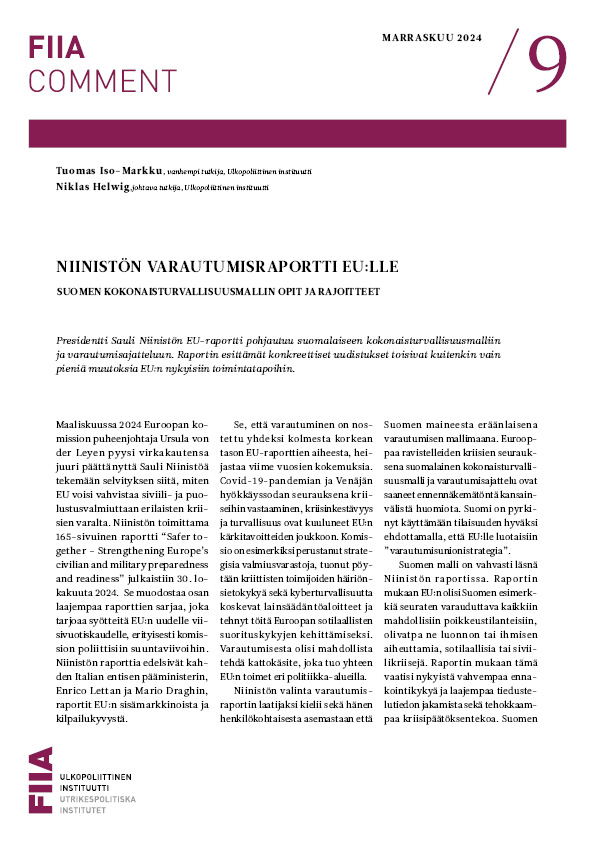Although the EU-Turkey refugee deal is presented to European citizens as proof of the EU’s firm stance and ability to secure the member states’ interests, it is highly likely that securing internal unity has done a significant disservice to the EU’s future policy options and ability to bring about structural reform in Turkey.
Although the EU-Turkey refugee deal is presented to European citizens as proof of the EU’s firm stance and ability to secure the member states’ interests, it is highly likely that securing internal unity has done a significant disservice to the EU’s future policy options and ability to bring about structural reform in Turkey.
The EU is preparing to grant Turkish citizens visa freedom to the Schengen area by June. This is not because Turkey has taken encouraging steps to fulfil its EU reforms, but due to an acute need to buy Turkey’s compliance in the EU-Turkey refugee deal signed on 18 March 2016. The initial rationale behind the deal is completely understandable – trying to tackle the migration flow from Turkey to Greece, breaking the human smugglers’ business model, and securing the freedom of movement in the Schengen area.
However, the EU’s visa regime is part of the Union’s rights-based approach to candidate countries, whereby applicant countries need to secure compatibility with the EU’s technical requirements as well as adhere to the political criteria, particularly freedom of expression, protection of minorities, independence of the judiciary, and the rule of law.
The AKP regime in Turkey has established a de facto one-party rule and crushed most expressions of opposing views, especially in the media. The EU has been strongly criticized by human rights organizations and Turkey’s pro-European forces for abandoning its most essential principles in order to get Turkey to implement the refugee deal. In this context, member states have also been concerned over Turkey taking backward steps in terms of securing fundamental rights and freedoms.
The EU’s main foreign policy success has been the Eastern enlargement of 2004, a process within which the EU’s conditionality managed to safeguard comprehensive socio-political reforms in all applicant countries comprising Eastern bloc and some Soviet states. This is often called the EU’s ‘structural’ foreign policy, meaning that rather than just influencing some short-term political decisions, the EU was able to comprehensively transform societies and even collective mentalities in the applicant countries, thus securing long-term structural transformation.
In the case of Turkey, this kind of positive structural reform was to some degree achieved during the period from 2002 to 2005, although some reforms were still secured, at least on paper, until 2008.
By 2010, however, it became clear that rather than trying to dissolve the ‘deep state’ notorious for human rights violations, the AKP government was much more interested in conquering the state apparatuses and in using them against dissident voices critical of the party’s increasingly authoritarian Islamic-Conservative project. Thus, by 2010, even the more optimistic analysts were obliged to acknowledge that the rule of law and fundamental rights were rapidly deteriorating in Turkey.
In a negotiation, actors are typically forced to scale down their own demands in order to secure cooperation. In this case, because Turkey was allowed to bring the issue of EU accession talks and visa-freedom to the negotiation table, there is a worrying tendency that the EU is negotiating by scaling down its most cherished principles. In so doing, the EU seems to be undermining the very toolkit it has at its disposal in its attempts to generate positive reform in Turkey.
According to EU practice, granting Turkish citizens visa-free access to the Schengen area is attached to the ability of the candidate country to fulfil the Copenhagen political criteria. Now, however, the Commission is proposing visa freedom in a situation where Turkey’s record in terms of the rule of law and freedom of speech is worse than ever before since the declaration of its candidate status in 1999. Once visa-free access is granted, the EU no longer has this tool at its disposal – it is effectively being used without any positive influence in the target country.
The point is that the EU can – and perhaps even needs to – make such a decision in order to secure internal unity and free movement under the current pressure caused by the migration crisis. However, it should be realized – and openly admitted – that by taking such a decision, there is a strong likelihood that the EU has significantly downplayed its future potential to implement positive structural reforms in Turkey. At the moment, the EU seems to be up against a lamentable situation whereby it is legitimizing Turkey’s authoritarian system by allowing the negotiations to ignore issues of fundamental EU principles.









